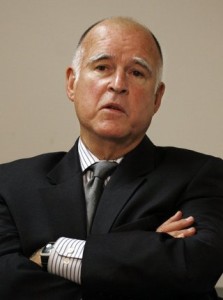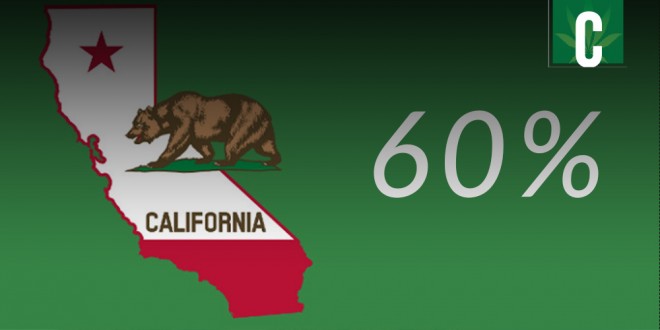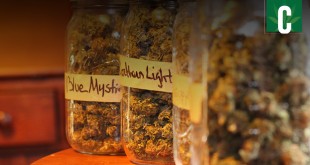Most likely voters in California want to legalize marijuana, according to a poll released in February.
 That means if cannabis proponents can put a legalization question on the statewide ballot in November, it will likely pass. The poll found nearly 60 percent of likely voters would vote for the proposal, including 70 percent of Democrats, “while a majority of Republican voters (57.8 percent) would vote against it,” the company behind the poll said in a press release.
That means if cannabis proponents can put a legalization question on the statewide ballot in November, it will likely pass. The poll found nearly 60 percent of likely voters would vote for the proposal, including 70 percent of Democrats, “while a majority of Republican voters (57.8 percent) would vote against it,” the company behind the poll said in a press release.
The survey, published by Probolsky Research, found young voters support legalization by the widest margin, with 18-to-34-year-olds backing the idea by 80 percent. Liberals also endorse legal weed by 80 percent, while 55 percent of moderates said they would vote yes.
About 38 percent of conservatives, meanwhile, said they favor the ballot initiative. “That said,” Probolsky reported, “58.9 percent of conservatives vote no.
Whichever way they lean, most Californians have made up their minds on the issue. Only 3 percent of likely voters said they didn’t know how they would vote on legalization or declined to answer pollsters’ questions.
The poll suggests a rosy outlook for marijuana proponents across the state. Two previous efforts to legalize have failed, largely because of schisms between reform groups. Many observers expressed early concern those divisions would remain this time around, but so far they haven’t stalled the 2016 initiative.
Probolsky speculated that public support is likely growing in part because state and local officials are already preparing for legal cannabis, treating it as a done deal before it even reaches voters.
Regulations rushed local communities into banning dispensaries

Last year, Gov. Jerry Brown signed a law that imposes the first set of comprehensive regulations on a medical marijuana system long derided as lawless. Legislators allowed local communities to bar pot shops and cultivation, for medication or recreation, but accidentally imposed a deadline of March 1; municipal governments that failed to act by that date would lose the power to enact local rules later.
Hundreds of localities across the state responded by passing total bans on legal marijuana, including medicinal cannabis. Lawmakers quickly removed the deadline from the law, but that won’t overturn the bans that are already in place.
2016 legalization push has wide support
This year’s legalization push is led by tech billionaire Sean Parker. The group has raised more than $2 million to gather voter signatures for the initiative. They have the backing of major national pro-marijuana groups, the state’s lieutenant governor, and the NAACP. The California Council of Land Trusts, an environmental organization, recently joined the list.
“According to an analysis from the nonpartisan Legislative Analyst’s Office, the ballot measure could raise state and local revenue of more than $1 billion annually,” Parker’s group said in a statement. “Under the measure, 20 percent of these revenues will be disbursed to the Environmental Restoration and Protection Account, which will be used for environmental cleanup, remediated and restoration of public lands damaged by cultivation, as well as environmental enforcement against illegal water diversion, illegal cultivation, distribution and use of marijuana on public lands. This represents a strong, targeted investment so that public lands that had been taken over and abused by drug cartels will be restored and become safe and accessible for all Californians.”
 California Marijuana Market Breaking "Marijuana News" from CA
California Marijuana Market Breaking "Marijuana News" from CA





